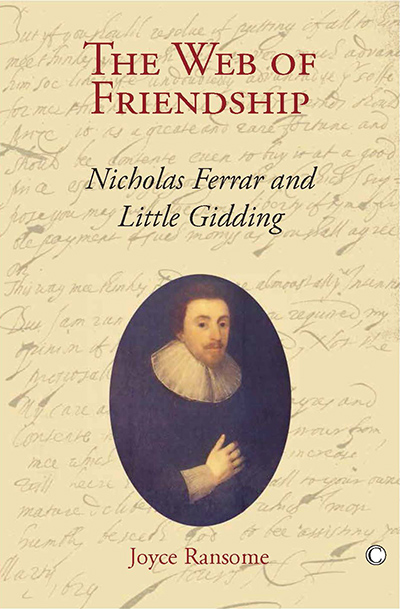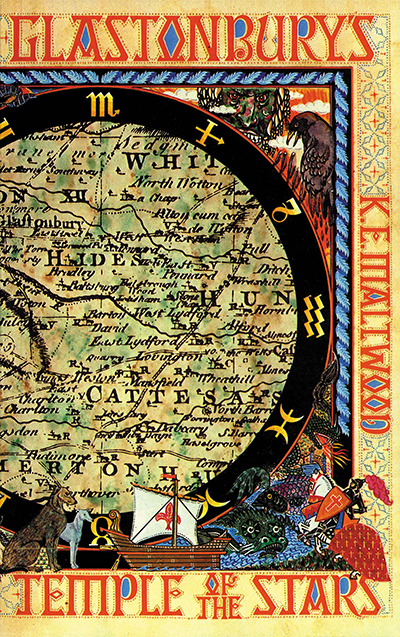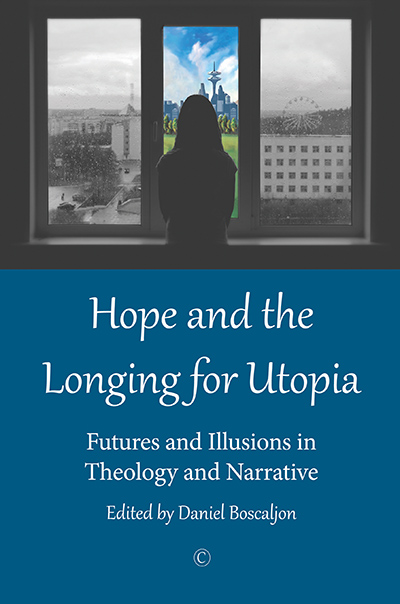Description
This is a biography of Nicholas Ferrar (1593-1637) and his family, focusing on his background, his education and the experiences that shaped his ministry, as well as the circumstances that brought the family to the village of Little Gidding in Cambridgeshire. Relying mostly on contemporary accounts and avoiding the hagiographic tone adopted in previous biographies, Ransome shows how the search for community was central to Ferrar’s life, and this becomes the unifying theme around which she has constructed her account.
Indeed, Ferrar transformed his mercantile family into a religious and educational community, a voluntary society that he hoped would preach to contemporaries by their example. While that hope was at best only partially fulfilled in his lifetime, those who had known him at Little Gidding were able later to form networks that adapted that piety and voluntarism to create societies acceptable within the church. These men led the way to voluntary Anglicanism that characterized a ‘Church of England’ in transition from a national to an established but essentially voluntary institution.
For its fresh perspective on the unique Little Gidding that Ferrar created, this book will appeal to both an academic and general audience of readers interested in early modern history, church history, English literature, theology, family history (historical sociology) and gender studies.
About the Author
Dr Joyce Ransome attended Oberlin College before achieving an M.A. and Ph.D. at the University of California. She is a member of the Ecclesiastical History Society, Church of England Record Society and the Friends of Little Gidding. Having lived in both the UK and USA, Dr Ransome has also enjoyed travelling throughout Europe.
Contents
List of Illustrations
Acknowledgements
Editorial Conventions
Note on Sources
Abbreviations
Introduction
1. Formative Years: ‘the time of his ingathering’
2. The New Household at Little Gidding: ‘United not only in Cohabitation but in Hartes’
3. Enlarging the Community: The ‘Web of Friendship’
4. Voluntarism and the Wider Mission: ‘A Light upon a Hill could not be hid’
5. Temperance and Tensions: ‘Frayltie & Fears’
6. Harmonies: ‘Rarities in their Kind’
7. Nicholas Posthumous
Conclusion
Appendix: The Ferrar and Collet Families
Notes
Family Trees: Ferrars, Collets and Mapletofts
Bibliography
Index
Endorsements and Reviews
Subjects renowned for their piety pose special challenges for the biographer. Joyce Ransome … [who] has spent the last several decades immersed in the Ferrar archives, is uniquely situated to confront them, and does so deftly in The Web of Friendship … Ransome argues for a corrective to the view that by moving to Little Gidding, Ferrar withdrew from worldly concerns to focus entirely on spiritual matters … Ransome disrupts previous biographers’ descriptions of perpetual familial harmony by examining the archival evidence for tensions and disagreement within the community … This long overdue and meticulously researched volume will certainly pave the way for future scholarship on Little Gidding, and is an essential addition to seminary libraries.
Regina L. Walton, in Anglican Theological Review, Vol 93:4
The story of Nicholas Ferrar and the community he and his family established at Little Gidding in Huntingdonshire has been described in earlier biographies of Nicholas Ferrar himself, but despite his name being added to the Anglican Calendar in 1980, the history of Little Gidding is not well-known. Joyce Ransome has written a scholarly survey of the life of Nicholas and of the community he founded. Her aim is to offer a critical study of Litte Gidding, moving beyond the hagiography of earlier accounts, which have largely accepted at face value the materials collected by John Ferrar after his brother’s death. The picture that emerges from these pages is far more complex and reveals a much more interesting mix of a deep commitment by many of the Ferrar family leading the life of a Christian community alongside a constant struggle to maintain a balance between voluntary acceptance and subtle spiritual pressures to conform. … Joyce Ransome has also succeeded in showing the importance of Nicholas Ferrar and Little Gidding in the story of the Church of England. Nicholas himself emerges as a more nuanced figure than in earlier hagiographic accounts, and all the more credible and interesting for that. He certainly warrants his place in the Calendar.
Bob Whyte, in Reviews in Religion and Theology, Vol 19 (3)
Taking as an interpretive motif the intricate and beautiful biblical harmonies produced, almost against the odds, within this contemplative retreat, Ransom judiciously reassesses Little Gidding as a functioning community.
Peter Thompson, St Cross College, Oxford, in The Journal of Ecclesiastical History, Vol 63 (4)
All those with an interest in Huntingdonshire’s history and particularly members of our Society will welcome this new biography of Nicholas Ferrar. … The book will appeal to both an academic and an informed general audience. … It was enjoyable to read and explores not just the life of Nicholas Ferrar and the community but sheds light on several aspects of contemporary social and economic history.
Ken Sneath, in Huntingdonshire Records
The community at Little Gidding that emerges in the gentle Huntingdonshire countryside in the mid-1620s, under the leadership of Nicholas Ferrar and his mother Mary, has held its fascination down the years. It is still, today, a place of retreat and prayer. The experiment has been recognised as an important contribution to the Anglican tradition that still inspires. This careful and detailed study of its origins is a valuable contribution and resource for understanding the people and circumstances that produced such an experiment and how it fits into that crucial period, just before the Civil War, of Anglican history.
Paul Ballard, in Theological Book Review, Vol 24, No 2
Joyce Ransome has written a very helpful biography of the Little Gidding community and in particular Nicholas Ferrar. This is a significant work that has completed original research in the letters and documents associated with this important 17th-century Anglican community … The book includes much original research, careful weighing of evidence, and most helpfully analysis of the influence of this original society on later societies within the Church of England.
Phillip Tovey, in Archives: The Journal of the British Record Association, Vol 36, No 125
[The Web of Friendship] is a work of exhaustive academic research and therefore provides a much more comprehensive insight into Nicholas Ferrar’s early life, his motivations, personality and his times, all elements which influenced the creation and management of the community of Little Gidding … Ransome’s work is realistic in its assessment of Ferrar’s community and the nature of human relationships within that community; she draws upon her sources to provide a refreshingly honest assessment of Ferrar’s Little Gidding.
Mary Jepp, in Theology, Vol 116, No 5





